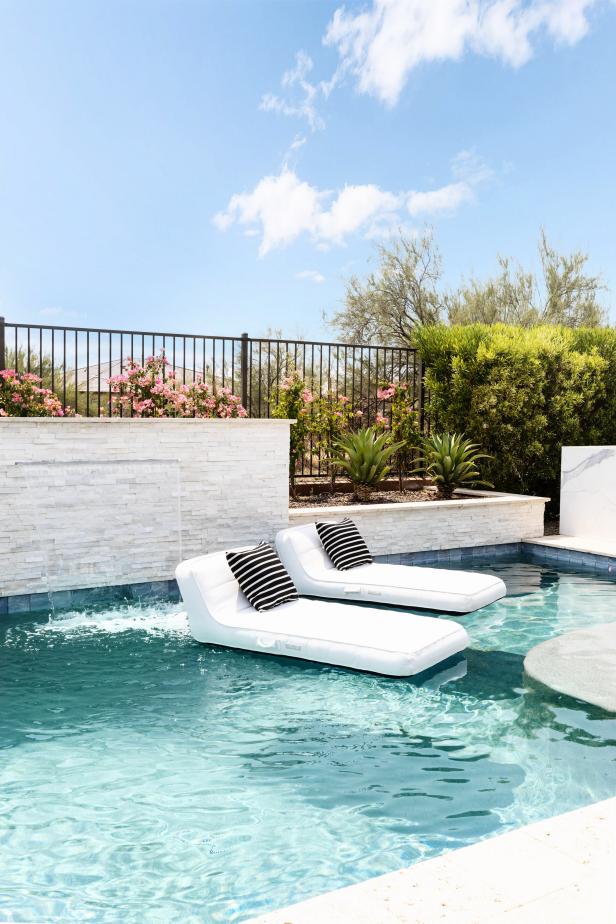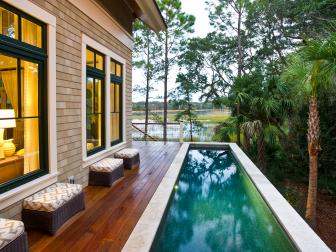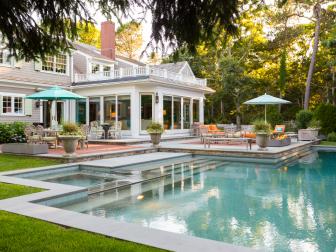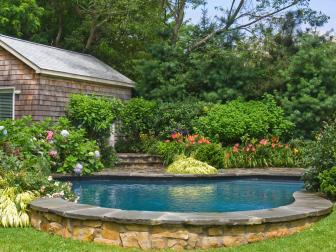Does a Swimming Pool Add Value to a Home?
Many factors influence the value that a swimming pool has on your property, including your own enjoyment.
If you’re thinking of adding an inground swimming pool, you're probably wondering if a pool adds value to your home. In other words: If you sell your home, will the selling price cover most or all of the costs of a pool, or will you take a bath on your investment?

Life Created
First, some intangibles. It may be that you and your family get so much enjoyment and satisfaction from your pool that recouping your investment is a moot point. Hard to put a price on summertime splashes and smiles.
That said, there are several factors that can help you determine if a swimming pool will add positive value to your home:
- If you live in a neighborhood where many of your neighbors have swimming pools, your investment is probably solid. In fact, in those circumstances not having a pool might decrease your home’s marketability.
- In warm climates, such as Arizona or Florida, a pool can be an attractive feature for potential buyers.
- If you’re in a real estate market where houses sell quickly, a pool might not be a deterrent to a prospective buyer.
Doing the Math
Real estate experts estimate that an average 14x28-foot inground concrete pool potentially adds 5 to 8 percent to the real estate value of your home. If your property is worth $400,000, you’ll realize a boost to the value of your property of about $20,000 to $32,000. But the average cost of installing a 14x28-foot inground concrete pool is about $50,000, which means you’ll only recoup a portion of your original pool investment.
Several other factors influence the added value of a pool. If you’re selling a house with a pool that’s been well-maintained, nicely designed, has amenities such as adjacent decks, patios and shade structures, and the surrounding area is attractively landscaped, a swimming pool could fetch more value. On the contrary, if the pool is in need of repair, isn’t that attractive or has been shoehorned into a small yard, its added value to your property likely will be diminished.
In-Ground vs. Above-Ground Pools: Pros + Cons of Each
Budget, surroundings and resale value are just a few factors that you need to consider when deciding what type of pool to install in your backyard. Compare in-ground and above-ground pools to see which one if right for you.
Factoring in Ongoing Costs
In addition to the face value of installing a swimming pool, there are annual costs associated with a swimming pool that can influence its value to your home — and your time.
Annual maintenance for pool cleaning and adjusting chemicals runs $500 to $1,000 per year if you do the work yourself, and the cost varies depending on where you live. If you’re in a warm climate and use your pool throughout most of the year, you’ll have more upkeep. In colder climates, you’ll probably shut down your pool for most of the year.
Professional pool services will clean your pool and filters and adjust chemicals for $80 to $150 per month, depending on the size of your pool and how detailed the services are. Pros charge $150 to $300 for opening up a pool at the beginning of the swim season and the same amount for closing down and winterizing your pool at the end of the year.
Electricity costs for running a circulating pool pump costs about $300 per year. Heating a pool can add $500 to $800 to your annual utility bills.
Homeowners insurance typically covers “other structures” such as pools, but if you plan to install a pool you should check with your insurance agent about increasing your liability coverage. You can mitigate insurance costs — and add a significant measure of safety — if your pool is protected by childproof fencing and locked gates.


















































